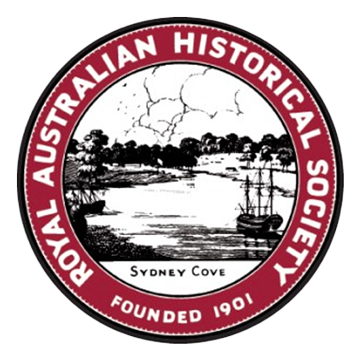RAHS Subscriptions: Journals – Vol 106 pt 1 June 2020 ABSTRACTS
The Elusive Reginald Benjamin Levien: Victoria’s commercial agent in Asia, fraudster, recidivist
James Cotton
R. B. Levien was appointed in 1905 Victorian commercial agent in North Asia. Setting up office in Shanghai in late 1906 he and his colleague Frederic Jones of Queensland were the first Australian government officials based in China. Levien’s appointment was an act of patronage and he endured a sustained press campaign critical of his role, but his work to 1909 coincided with expanding Victorian trade with Asia. An elusive personality who receives scant mention in the literature, he was subsequently gaoled for fraud. This article also establishes that, later serving in the AIF under an assumed name, he spent a year in military prison similarly for fraud.
Anna Blackwell, Sydney Morning Herald correspondent in Paris (1860-90)
Patricia Clarke
Anna Blackwell’s dispatch as she fled Paris when the Prussian Army approached the capital in 1870 was a high point of her long representation as the Sydney Morning Herald’s correspondent in France. Appointed in 1860 when only a handful of women in Australia had any journalistic association with newspapers, the Fairfax family valued her ‘gossiping’ style. Her dramatic dispatch on the Franco-Prussian War reveals several facets of the changing face of Australian press history. Two years later cable communication revolutionised many aspects of news gathering and production. Major news arrived in hours but dispatches from correspondents such as Blackwell continued to be sent by ship mail. This had ramifications for the perceived value of their dispatches.
Speculator, Settler, Selector, Squatter, Surveyor: Surveyors and the Land Laws, 1860s to 1880s
Terry Kass
The two decades after the passing of the Crown Lands Alienation and Occupation Acts of 1862 until 1884 when the Acts were considerably revised was a pivotal period in land settlement in New South Wales. The establishment of ‘free selection’ began a frenzy of land acquisition by selectors and squatters who hoped to protect their runs from selectors. Surveyors were tasked with measuring land particularly Conditional Purchases established by the Alienation Act. They gained considerable knowledge of the workings of the Act as well as the districts to which they were assigned. Surveyors also acquired land. How did their land-use affect their professional role of measuring and assessing land? What checks and balances were in place ensuring that they did not indulge in unethical practices? This article examines the experiences of three typical Licensed Surveyors active from 1862 and 1884 and beyond to examine these issues.
No Band of Brothers: Officers and internal politics in the 19th Australian Infantry Battalion, 1915-1918
William Westerman
Mythology concerning the Australian contribution to World War I minimises important aspects about the experience of officers, including issues of competence and ineffectiveness, as well as internal frictions and rivalries. This article provides a more complex view of Australian officers, presenting the history of senior officers in the 19th Australian Infantry Battalion. It shows how officers moved through the Australian Imperial Force as an organisation, and that the battalion was rife with ambitious officers, personal rivalries and that internal politics was a large factor in determining which officers were promoted.
Percy Gledhill’s memorial to Aboriginal People
Keith Amos
On a public reserve beside the Hawkesbury River near Lower Portland, a little-known memorial obelisk is dedicated: ‘To the Aborigines of the Hawkesbury for whom this area was originally reserved’. Unveiled in 1952, it was instigated by Percy Gledhill (1890-1962), councillor and fellow of the Royal Australian Historical Society. The memorial commemorates Sackville Reach Aboriginal Reserve (1889-1946), founded by the Aborigines Protection Board and serviced by resident missionaries from the NSW Aborigines Mission. This article outlines the reserve’s history with particular attention to Gledhill’s role in organising the monument.
Book Reviews
Geoffrey Blainey, Before I Forget: an early memoir, Hamish Hamilton, an imprint of the Penguin Random House group of companies, 2019, x + 340 pages; ISBN 9781760890339.
Russell McGregor, Idling in Green Places: a life of Alec Chisholm, Australian Scholarly Publishing, Melbourne, 2019, viii + 285 pages; ISBN 9781925801996.
Michael Molkentin, Anzac & Aviator: the remarkable story of Sir Ross Smith and the 1919 England to Australia Air Race, Allen & Unwin, Crows Nest, NSW, 2019, xviii + 406 pages; ISBN 9781742379197.
Emily Maguire, This is What a Feminist Looks Like: the rise and rise of Australian feminism, Canberra, ACT, NLA Publishing, 2019, 249 pages; ISBN 9780642279453.
Terry Kass, Unlocking Land: a guide to Crown Land records held at State Archives NSW, Terry Kass, Lidcombe, NSW, 2019, 238 pages; ISBN 9780648377504.
Bettina Bradbury, Caroline’s Dilemma: a colonial inheritance saga, NewSouth Publishing, Sydney, 2019, ix + 335 pages; ISBN 9781742236605.
Carolyn Holbrook and Keir Reeves (eds), The Great War: aftermath and commemoration, NewSouth Publishing, Sydney, 2019, vii + 296 pages; ISBN 9781742236629.
Callum Clayton-Dixon, Surviving New England: a history of Aboriginal resistance and resilience through the first forty years of the colonial apocalypse, Anaiwan Language Revival Program, Armidale, NSW, 2019, 176 pages; ISBN 9780646812397.
Jane Lydon and Lyndall Ryan (eds), Remembering the Myall Creek Massacre, NewSouth, Sydney, 2018, 215 pages; ISBN 9781742235752.
Lenore Coltheart and Amie Nicholas (eds), The Timber Truss Bridge Book, Transport for NSW, Auburn, NSW, 2019, xiv + 210 pages; ISBN 9781925891324.
Desley Deacon, Judith Anderson: Australian star, first lady of the American stage, Kerr Publishing Pty Ltd, Melbourne, Vic, 2019, ix + 509 pages; ISBN 9781875703180 (eBook), ISBN 9781875703067 (Print on Demand).
